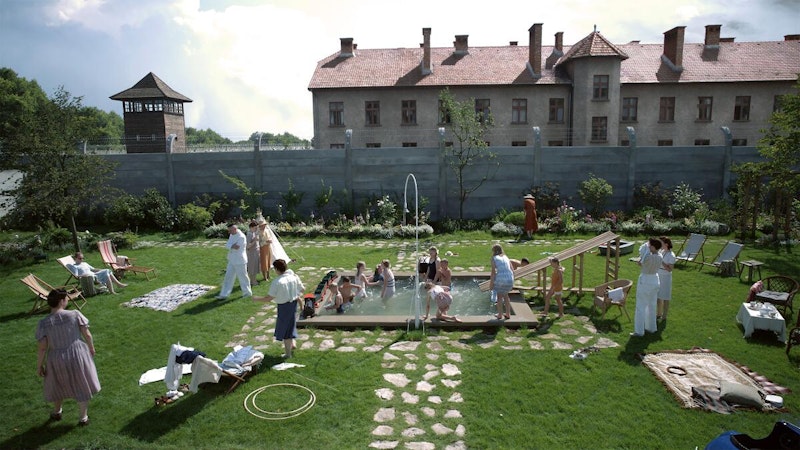When I saw Don’t Worry Darling last year, I thought the twist was that Florence Pugh and Harry Styles were both employed by the company running the Stepford Wives-style simulation: after spending more than an hour in sun-drenched soul-sucking suburban simulacrum, the movie jumps up to reality where Styles is a repulsive nerd and Pugh’s a doctor coming home from a long day of work. Maybe the rest of the movie would follow their petty domestic disputes all while the “people” we just left are run in circuits right over there on the gigantic monitor. Maybe they even had Olivia Wilde’s comatose body in the next room, powering another simulation, caretakers and bystanders in another hypothetical fascist dystopia.
But it was much less interesting than what those first few shots suggested: Styles was jealous of his doctor wife, and in flash forward, we see him drug her and put her into a coma. And then it’s back into Darling land, where Pugh realizes she’s trapped and commits to escape—a much less interesting twist than the melodrama of digital camp guards. I even thought that would make a great movie; I wrote an outline and put it away. Not the most original idea: both Billy Wilder and Jean-Luc Godard said at different times that they’d like to make comedies about “typists at Auschwitz,” a “small, human story” against the backdrop of historical catastrophe. Luckily I never got farther than that outline; Jonathan Glazer scooped me with The Zone of Interest.
Glazer has only made four films, and this is his first in a decade. Sexy Beast, from 2000, remains relatively obscure, while Birth and Under the Skin are widely-known and loved, if Glazer himself isn’t. Unlike music video contemporaries Spike Jonze, Michel Gondry, and even David Fincher, Glazer doesn’t offer much of himself and, by only making one film per generation, has necessarily limited his reach. Many people seeing The Zone of Interest this month as it expands across the country may not know he was behind those other two films, movies they might’ve loved in 2004 or 2013; if they do, then they’ll surely recognize the sound design, the photo negative sequences, and the alien camera attack. Everything is in focus in this movie; as Nick Pinkerton wrote of Fincher’s The Killer, “it may be the most in-focus movie ever made.”
Glazer’s stylistic flair isn’t enough to support a film with a premise this thin: a guard, his wife, and their family build their dream house outside of the concentration camp he’s in charge of: Auschwitz. This was the logline trotted out during its premiere in Cannes last May, and the trailer that A24 released only mentions “unspeakable evil,” a deft post-October 7 move for an otherwise unmarketable film. The Zone of Interest is neither drama nor comedy, just a series of static wide shots imbued with the same question, the premise of the movie: “What if a guard and his wife tried to build their dream house outside of Auschwitz?” Yeah, what if? And? And? And then? And then? AND THEN AND THEN AND THEN AND THEN AND THEN AND THEN????
The Zone of Interest should’ve been a comedy. If Glazer wanted to tell a story about how people compartmentalize to extreme degrees, or how monstrous people go to the bathroom and have minor domestic fights just like us, then he’s got little to offer, and he’s way too late for a once novel setup. Jerry Lewis tried it in 1972 with The Day the Clown Cried and was unable to get the film finished, although a rough version will be screened in Washington, DC this year. The austere, ever in-focus images give the movie a false seriousness with no depth and suggestions of dread that go nowhere. The Holocaust is one of the most covered events in cinematic history, from every angle and every genre. It’s by no means exhausted, not even close—but The Zone of Interest has nothing to say, nothing to show, too stiff not to suffocate its own audience.
—Follow Nicky Otis Smith on Twitter: @nickyotissmith

